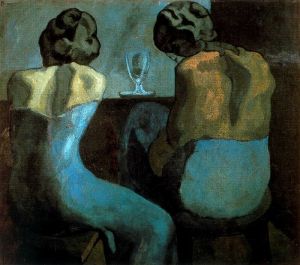As described by Jean-Claude Juncker, the president of the European Commission, in his Mission Letter to the Commissioner for Culture, Culture is a key component of our shared European identity and values. It contributes to the social cohesion and dynamism of our society. Therefore, Europe should promote our cultural diversity by helping Europe’s culture sectors to reach out to new audiences. But nowadays, Eurosceptic politicians all around the European Union threaten European culture.
How can the European Culture be defined?
François Vienne, the Vice President of the International Festival of Opera of Aix en Provence, France, defines it as “the free circulation of works of art and artists. It is about learning to work together on common projects, beyond the borders.”
European networks of Culture are a great way to improve and modernize the image of Europe who currently suffers from a very present Euro scepticism. In addition, Cultural Projects, which gathered several European countries, can help revitalize a country that suffers from economic or political crisis inside its borders, as culture represents 4,5 % of the EU GDP.
Therefore, in a context of economic crisis, European Union has everything to gain by promoting and financing Cultural European projects.
This view is not shared by most of the Eurosceptic politicians who show a strong attachment to traditionalism, national preference and cultural nationalism. In fact, opponents have, at multiple occasions, described European Culture as “decadent”, or even a “cultural elitism”.
Why do these parties oppose the emergence of a European culture?
In general, far-wing Eurosceptic parties accuse European Culture of being a threat to national identity by promoting multiculturalism and cosmopolitism. They have a very restrictive view of Culture and refuse to admit that a country can combine European Culture and Local Culture at the same time.
This worldview shared by far-wing parties is not recent. The most striking period of history in which contemporary and multicultural culture has been scorned and criticized in Europe took place in the late 1930’s. On November 1937, the Nazi regime organized a “degenerate art”, as opposed to the “heroic art” figurative exhibition to show the massive decadence of art in Europe. Among the degenerate: Picasso, Chagall, and Kirchner…
Today censorship is of course not as threatening as it was at the time of the totalitarian regimes, but yet some elements outline the fact that European Culture is still threatened.
In most of the places rules by far right-wing parties, Culture comes up against censorship, critics and all kind of difficulties.
Striking examples took place in the 1990s, in the South of France, near Avignon. For the cities run by the Front National, it was more about censorship than cultural policy: asphyxiated associations, eliminated subsidies, closed places, officials ostracized, attacked festivals, books censored. Plus, far right wing politicians tried to impose their nationalist, and even sometimes racist, culture. On the public libraries, they cancelled the subscription to all of the leftist newspaper and replaced them with right-orientated papers and, even more striking, they imposed books written by racist theorists, such as the Vichyist Alexis Carrel. On the cities, they changed the names of public places and street, in order to create a more nationalist environment.
Who to rely on to protect our European culture today?
The first answer that comes to mind is the European institutions such as the European Commission. But the new commissionner for Culture, the former Hungarian minister, does not seem to be the ideal man to fulfil this mission. In fact, Tibor Navracsis has been accused to limit the freedom of expression and to undermine the arts sector in Hungary. Even if more than 30 European artists, including the director Simon McBruney and the the composer George Benjamin, put forward evidences showing that Navracsis settled hash the medias and the cultural institutions, Jean-Claude Juncker named him commissioner anyway.
I believe, it is now the artist’s responsibility to protect, defend and promote European culture. None of them should follow the behaviour of the president of the Festival of Avignon, Olivier Py, who threatened to cancel the Festival if the Front National was to be elected. The artists’ mission, as it is supported by public found, is to use their talent to sensitize the audience to European culture.
. …. Mathilda Loussert

